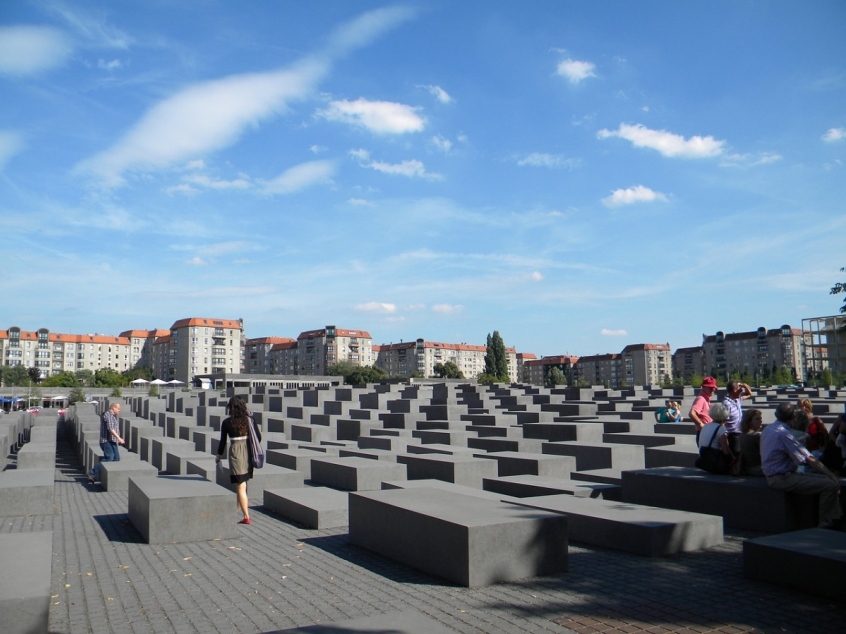Antisemitism in Germany is being fiercely debated after a series of attacks on Jews, with the leader of the country's Jewish community advising Jews not to wear traditional skullcaps or kippahs in public.
Last week two young men wearing kippahs were assaulted in Berlin. One of them, a 21-year-old Israeli Arab, said he was wearing it to demonstrate his belief that Germany was safe for Jews.

The young men were hit with a belt and had a glass bottle thrown at them. A video shared on Facebook shows the attacker yelling 'Yahudi', an Arabic word for Jew, before he is dragged away.
The incident has provoked debate not just about antisemitism in Germany but about how Jews should respond.
A 'Berlin Wears Kippah' solidarity march is taking place in the capital today, and a spokesman for the Jewish Forum for Democracy and against Antisemitism said: 'I used to always advise my Jewish friends and acquaintances not to wear a kippah so as not to show their Jewish identity. I changed my opinion.
'We must take up this fight and be visible again in public.'
However, the president of the Central Council of Jews in Germany, Josef Schuster, told Berlin public radio that Jews should exercise caution in big cities.
'Defiantly showing your colours would in principle be the right way to go,' he said.
'Nevertheless, I would advise individual people against openly wearing a kippah in big German cities,' he added.
However, he warned of the consequences of failing to stand up to antisemitism, saying: 'This is not only about antisemitism – it goes along with racism, it goes along with xenophobia. You need a clear stop sign here.'
Germany's Chancellor Angela Merkel condemned what she described as 'another form of antisemitism' saying that as well as attacks coming from right-wing groups, threats were also coming from some Muslim refugees.
While Germany has been praised for its exhaustive self-analysis in the decades after the Holocaust, a report for the Bundestag in 2017 said up to 10 per cent of Germans harbour classic antisemitic feelings, while 50 per cent harbour 'more mild' antisemitic feelings.













